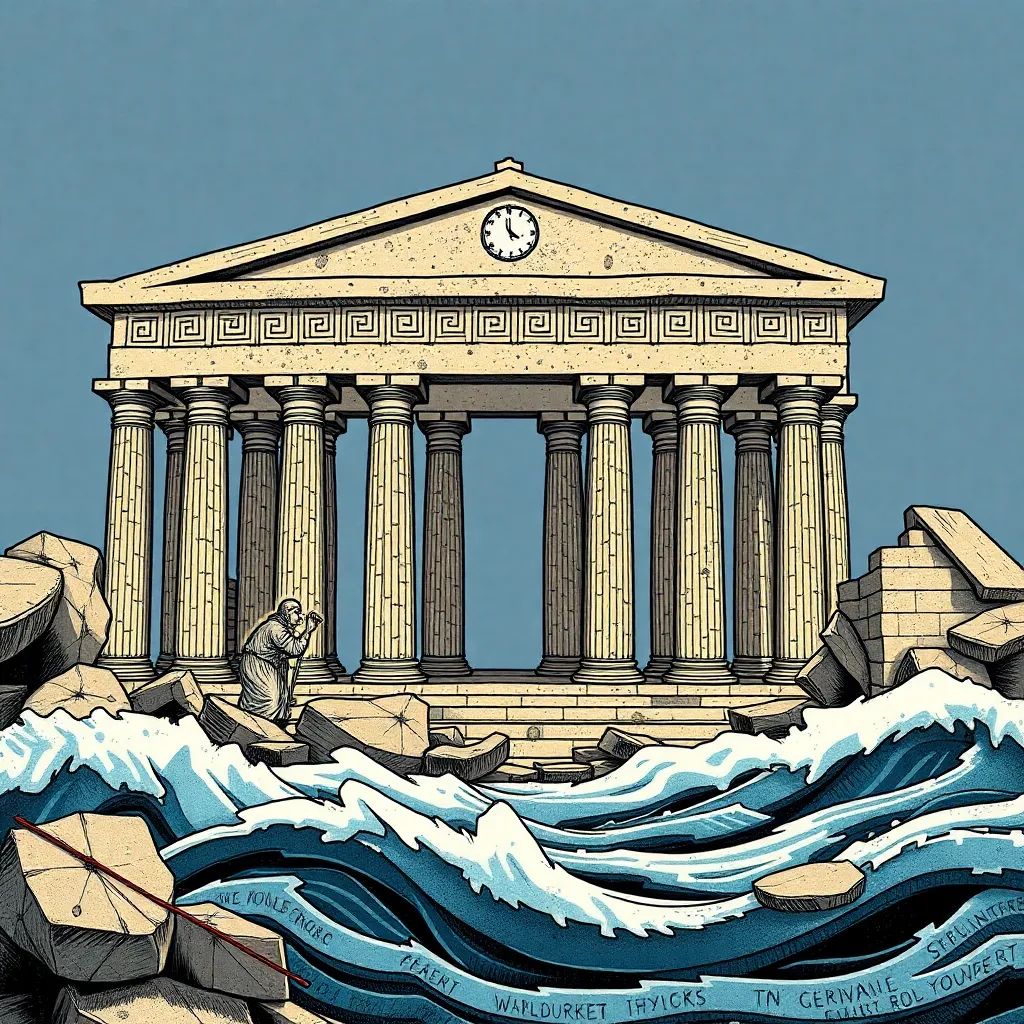The Odyssey: An Examination of its Cultural Impact
I. Introduction
“The Odyssey,” attributed to the ancient Greek poet Homer, is one of the most celebrated and enduring works of literature in human history. Composed in the 8th century BCE, this epic poem recounts the adventures of Odysseus as he struggles to return home after the Trojan War. The narrative is not only a tale of adventure but also a profound exploration of themes such as heroism, loyalty, and the quest for identity.
The cultural impact of a literary work extends beyond its narrative; it influences societal values, artistic expression, and philosophical thought. This article aims to examine the multifaceted cultural significance of “The Odyssey,” exploring its historical context, themes, influences on Western literature, and its presence in modern culture.
II. Historical Context of “The Odyssey”
A. Origin and authorship
The authorship of “The Odyssey” is traditionally ascribed to Homer, although the true identity of the poet remains debated among scholars. The epic is believed to have been composed in the 8th century BCE, a time when oral traditions were prevalent in ancient Greek society.
B. The significance of the epic in ancient Greek culture
<p"The Odyssey," alongside "The Iliad," played a crucial role in shaping Greek cultural identity. It provided moral and ethical lessons, illustrating the values of courage, fidelity, and the importance of cleverness and intelligence in overcoming adversity.
C. The role of oral tradition in the dissemination of the work
The poem was initially passed down orally, with bards performing the epic in public spaces. This oral tradition allowed for variations and adaptations over time, enriching the narrative and ensuring its place in Greek culture.
III. Themes and Motifs in “The Odyssey”
A. Heroism and the archetype of the hero
Odysseus serves as the archetypal hero, displaying qualities such as bravery, intelligence, and resilience. His journey embodies the heroic ideal of overcoming insurmountable odds through wit and perseverance.
B. The concept of homecoming (nostos)
The theme of nostos, or homecoming, is central to “The Odyssey.” Odysseus’s longing to return to Ithaca represents the universal human desire for belonging and stability.
C. The interplay of fate and free will
The narrative explores the tension between fate and free will, raising questions about the extent to which characters control their destinies. Odysseus’s struggles against divine forces illustrate this complex interaction.
IV. Influence on Western Literature
A. Direct adaptations and retellings
- Numerous adaptations of “The Odyssey” exist, including novels, plays, and films.
- Modern retellings often reinterpret the characters and themes for contemporary audiences.
B. The impact on later epic poetry and prose
The structure and style of “The Odyssey” have profoundly influenced subsequent epic poetry and prose, serving as a model for narrative techniques, character development, and thematic exploration.
C. The Odyssey’s role in shaping narrative structures
“The Odyssey” introduced narrative devices such as flashbacks and in medias res storytelling, which have become staples in literature and film.
V. Cultural References and Allusions
A. References in art and visual media
The imagery and themes from “The Odyssey” have inspired countless works of art, from classical paintings to modern illustrations. Artists often depict key scenes, such as Odysseus confronting the Cyclops or his reunion with Penelope.
B. Allusions in modern literature and pop culture
- Many authors reference “The Odyssey” in their works, drawing parallels between their characters and Odysseus.
- Popular culture frequently alludes to the epic, utilizing its themes of adventure and homecoming in various narratives.
C. The Odyssey in film and theatre
Adaptations of “The Odyssey” for stage and screen have brought the epic to new audiences. Films like “O Brother, Where Art Thou?” creatively reinterpret the narrative, while theatrical productions often strive for faithful renditions of the text.
VI. Philosophical and Ethical Implications
A. Exploration of morality and ethics in the narrative
The moral dilemmas faced by Odysseus and other characters prompt reflections on ethics and human behavior, exploring themes of loyalty, justice, and the consequences of one’s actions.
B. The impact on philosophical thought in Western civilization
“The Odyssey” has influenced philosophical discourse, particularly in discussions of ethics, leadership, and the nature of human existence. Philosophers have drawn from its themes to articulate ideas about virtue and the human condition.
C. Lessons on leadership and governance
Odysseus’s leadership qualities, including his strategic thinking and ability to inspire loyalty, provide valuable lessons on governance and the responsibilities of leaders.
VII. Global Reception and Adaptation
A. The Odyssey in different cultures and languages
“The Odyssey” has been translated into numerous languages and adapted across cultures, demonstrating its universal themes and resonance with diverse audiences.
B. Comparative analysis of adaptations across the globe
Different cultures have interpreted “The Odyssey” through their unique lenses, resulting in a rich tapestry of adaptations that reflect local values and narratives.
C. The resilience of its themes in various cultural contexts
The themes of “The Odyssey,” such as the struggle for identity and the quest for belonging, continue to resonate with audiences worldwide, highlighting the epic’s timelessness.
VIII. Conclusion
The cultural significance of “The Odyssey” is profound, influencing literature, art, philosophy, and popular culture for centuries. Its exploration of universal themes such as heroism, homecoming, and the human condition ensures its relevance in contemporary society.
As we continue to reinterpret and adapt this epic, “The Odyssey” endures as a testament to the power of storytelling and its ability to connect us across time and space. Its legacy will undoubtedly persist, inviting future generations to engage with its rich narrative and timeless lessons.




